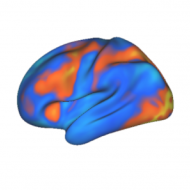Here’s an exchange of emails between PL and MC on a recently published paper (Balleine et al., 2007).
Email 1 (from PL):
Have a look at this introductory paragraph from a recent (Aug 2007) J Neurosci article by Balleine, Delgado and Hikosaka. What do they mean by “cognition” here?
The Role of the Dorsal Striatum in Reward and Decision-Making
To choose appropriately between distinct courses of action requires the ability to integrate an estimate of the causal relationship between an action and its consequences, or outcome, with the value, or utility, of the outcome. Any attempt to base decision-making solely on cognition fails fully to determine action selection because any information, such as “action A leads to outcome O,” can be used both to perform A and to avoid performing A. It is interesting to note in this context that, although there is an extensive literature linking the cognitive control of executive functions specifically to the prefrontal cortex (Goldman-Rakic, 1995; Fuster, 2000), more recent studies suggest that these functions depend on reward-related circuitry linking prefrontal, premotor, and sensorimotor cortices with the striatum (Chang et al., 2002; Lauwereyns et al., 2002; Tanaka et al.,2006).
Email 2 (from MC):
It sounds like they are distinguishing cognition from reward processing. I’m not sure why, since ‘cognition’ typically encompasses reward processing now days.
The distinction I think they’re really trying to make is between cognitive control and reward processing. Given that, it’s still a ridiculous paragraph. Why must it be either cognitive control or reward processing? It’s likely (no, virtually certain!) that the two interact during reward-based decision making. For instance, O’Reilly’s stuff shows how this might happen.
Another problem with this paragraph: They equate causal knowledge with cognitive control. Well-known causal knowledge doesn’t involve cognitive control! For instance, routine decision making would involve lower perceptuo-motor circuits, and if it involved differential reward then reward circuits would be engaged as well. Cognitive control has little/no role here.
When cognitive control is involved it’s probably doing a lot more than just retrieving causal relations from semantic memory. For instance, perceptual decision making studies show that cognitive control is involved even in deciding what is being perceived when uncertainty arises.
I guess what they’re trying to do is show that cognitive control doesn’t explain all of decision making since there must be a reward component as well. Perhaps this is a good point to make; they just didn’t do it well.
Email 3 (from PL):
Ahhh, ok I think I see now what they’re trying to say. It really just struck me as an excessively divisive statement to start out what appeared to be an interesting article. Can you say “flamebait”? Perhaps they’re trying to be provocative.
– PL & MC

The second author is likely the one and only Mauricio Delgado. I would never suspect him of being provocative. Well, he’s a Jets fan!
Its interesting that they don’t cite Damasio in this review, because he has asserted for years that decision making relies on emotion (I’d lump reward processing in with this). For example, he described several individuals with focal orbitofrontal lesions who could conceive of several solutions to a complex, open-ended word problem, but could not decide on which would be the best solution. These individuals also reported a total loss of affect or emotional tone. If I recall correctly, Damasio claims that the ability to decide between possible actions relies on an “emotional” evaluation of those actions before they are performed — i.e. the correct action “feels” right relative to the others.
I think that Damasio’s arguments about the specific brain structures that support this (e.g. the exact source of “somatic markers”) is controversial in some circles, but I buy the dependency of decision making on emotion that he posits.
I think it may be that Balleine is just not good at writing. If you’re in the mood for an excruciating article to read, try killing some language processing cells with the article this quote came from…
“For example, whereas lesions of the BLA do not affect acquisition of conditioned approach towards food during a tone or light CS, they do abolish the sensitivity of approach responses elicited by that CS to post-training devaluation of its associated US.” –from “Parallel Incentive Processing”, Balleine & Killcross, 2006 Trends in Neuro